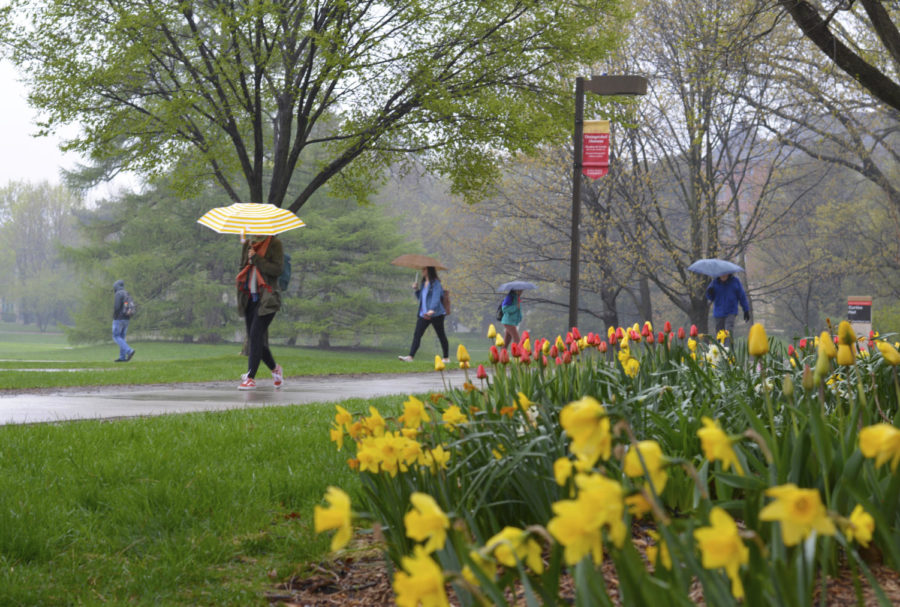Study finds wishing well for others when walking around improves mood
January 15, 2020
Wishing well for others when walking around made students feel happier, more connected and less anxious in a study conducted by three Iowa State researchers.
Douglas Gentile, psychology professor; Dawn Sweet, affiliate assistant professor; and Lanmiao He, graduate psychology student; worked on this study together, which was published in the Journal of Happiness Studies.
The study tested the benefits of three techniques intended to reduce anxiety and increase happiness or well-being. For the study, they had college students walk for 12 minutes around a building and focus on practicing one of three strategies.
There was also a control group of students who focused on the apppearences of people, such as the types of clothing, accessories, makeup and more.
All students filled out a survey before and after the 12 minute walk to document levels of their happiness, stress, anxiety, empathy and connectedness.
The first strategy was “loving-kindness” where the college student looked at people they saw as they walked and were supposed to think to themselves that they wished that person to be happy. The students with this strategy were encouraged to really wish the people to be happy rather than just having the thought because they had to.
“Interconnectedness” was the second strategy, which included looking at people and thinking about what the connection was between people. These students were encouraged to consider the feelings the people may share or what class they could both be taking.
The third strategy was “downward social comparison,” where the students looked at people and thought about how they may be in a better position than those they encounter.
“Walking around and offering kindness to others in the world reduces anxiety and increases happiness and feelings of social connection,” Gentile said in a news release. “It’s a simple strategy that doesn’t take a lot of time that you can incorporate into your daily activities.”
Each technique was compared with the control group, and the researchers found the technique that showed the best benefits were those using the loving-kindness strategy.
“This simple practice is valuable, regardless of your personality type,” He said in the news release. “Extending loving-kindness to others worked equally well to reduce anxiety, increase happiness, empathy and feelings of social connection.”
Those in the interconnectedness group also felt more connected and empathetic while the downward social comparison group revealed no benefit and was notably worse than the loving-kindness group.
The downward social comparison strategy has had a “buffering effect” when people are feeling bad about themselves.
“At its core, downward social comparison is a competitive strategy,” Sweet said in the news release. “That’s not to say it can’t have some benefit, but competitive mindsets have been linked to stress, anxiety and depression.”
How different types of people reached to each technique was also looked at by the researchers.
In the news release, He said the practice is valuable regardless of personality type and that extending loving-kindness works equally well to reduce feelings of anxiety, increase happiness and social connection feelings.
Gentile said comparisons of people is demonstrated on social media, and the results of social media comparisons show comparing others and yourself is a risky strategy.
“It is almost impossible not to make comparisons on social media,” Gentile said in the news release. “Our study didn’t test this, but we often feel envy, jealousy, anger or disappointment in response to what we see on social media, and those emotions disrupt our sense of well-being.”
Gentile also said in the news release that comparison works well when people are learning or making choices, but when it comes to the well-being of people, loving-kindness is more effective and consistently improves happiness.







